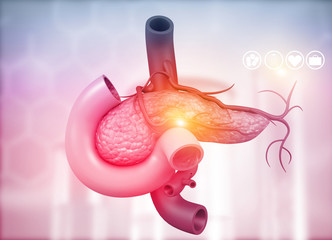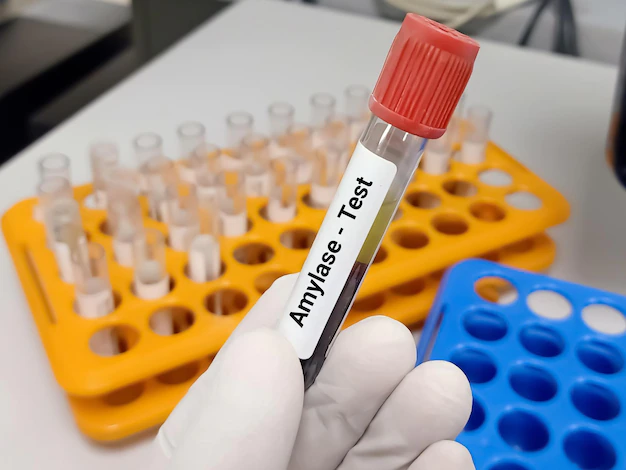20 signs your pancreas is functioning badly
.png?v=1673002579080)

Related products

Are you experiencing unexplained fatigue, digestive issues, or changes in your blood sugar? It may be a sign that your pancreas is not functioning properly. Learn the 20 signs that your pancreas may be functioning poorly. Find out how to better protect your health and prevent further complications.
The Pancreas and its Function

The pancreas is a small organ located behind the stomach and in front of the spine. It is approximately 15 centimetres long. It is a vital organ that plays a role in helping to digest food and produce hormones.
The pancreas has two main functions - exocrine and endocrine.
-
The exocrine function: pancreas produces enzymes and releases them to the bile duct that helps the digestive system break down proteins, carbohydrates, and lipids in food.
-
The endocrine function is to produce and secrete hormones, such as insulin, which help regulate blood sugar levels in the body
Additionally, the pancreas produces hormones that help regulate appetite and digestion. Without a functioning pancreas, it is difficult to digest food properly, resulting in malnutrition and other health complications.
Risk Factors and Causes of pancreatic dysfunction
Risk factors include advanced age, obesity, smoking, diabetes, alcohol consumption, and a sedentary lifestyle. Poor dietary habits, such as inadequate intake of essential vitamins and minerals, can also contribute to a poor pancreatic function.
Pancreatic disease messes with pancreatic function and has multiple causes. Common disorders of the pancreas include pancreatitis (acute pancreatitis and chronic pancreatitis), pancreatic cancer, diabetes, cystic fibrosis, and pancreatic insufficiency.
Pancreatitis is an inflammation of the pancreas and is the most common cause of damage to the pancreas. Pancreatitis can either be acute or chronic. Acute pancreatitis is a sudden onset of inflammation. In contrast, chronic pancreatitis results from long-term inflammation of the pancreas. Severe pancreatitis impairs the gland's function and can be observed with several signs and symptoms. It is important to detect those signs and seek medical care immediately.
Pancreatic cancer is a serious and life-threatening condition that often has no symptoms until it has progressed.
Other causes include genetic factors, such as cystic fibrosis, and autoimmune diseases, such as type 1 diabetes. Certain medications can also cause damage to the pancreas and impair the organ's ability to function properly. In addition, alcohol abuse can lead to pancreatic injury, as can gallstones or tumours that block the pancreatic duct and prevent the release of digestive enzymes.
The 20 signs that your pancreas is functioning poorly
Knowing the signs of pancreatitis can help you detect it early and seek medical treatment. Here are 20 signs and common symptoms that your pancreas is functioning poorly:
-
Unexplained weight loss;
-
Abdominal pain, often radiating to the back;
-
Nausea and vomiting;
-
Jaundice, yellowing of the skin and whites of the eyes;
-
Clay-coloured stools;
-
Loss of appetite;
-
Fatigue;
-
Pain in the upper abdomen or lower back;
-
Bloating;
-
Dark urine;
-
Fever;
-
Itchy skin;
-
Difficulty digesting fatty foods;
-
Blurred vision;
-
Low blood sugar levels;
-
High blood pressure;
-
Elevated liver enzymes;
-
Abnormal liver function tests;
-
Oedema;
-
Abnormal levels of pancreatic enzymes in the blood.
If you experience any of these symptoms, you must consult your doctor for a proper diagnosis.
Tests for Pancreas Dysfunction

Pancreatic function tests are a series of tests used to assess the health of the pancreas. These tests measure the level of enzymes such as amylase and lipase secreted by the pancreas. Imaging tests such as CT scans, MRIs, and ultrasounds may also be used to assess the health of the pancreas and detect any abnormalities. Endoscopic ultrasound may be used to check for any blockages in the ducts of the pancreas that could be causing problems.
You can find the lipase blood test here.
















 Rated Excellent by 26,523+ Reviews
Rated Excellent by 26,523+ Reviews